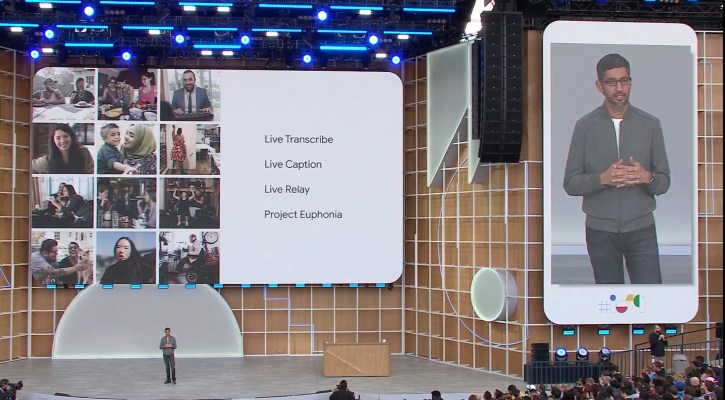For those with speech impairments, artificial intelligence-powered voice recognition technology simply doesn’t work for them. Google is trying to fix that.
Today at Google I/O, Google unveiled Project Euphonia, to explore how artificial intelligence can better recognize those with speech impairments and other types of speech patterns.
“We also want to help those with speech disorders or people whose speech has been affected by a stroke or ALS,” Google CEO Sundar Pichai said at I/O. “Researchers from Google AR are exploring the idea of personalized communication models that can better understand different types of speech, as well as how AI can help even those who cannot speak to communicate.”
Voice recognition technology doesn’t work today for people with speech impairments because no one has collected large enough data sets, Pichai said. That’s where Euphonia comes in.
In partnership with nonprofits like ALS Therapy Development Institute and ALS Residence Initiative, Google is recording voices of people who have the neurodegenerative condition ALS.
“We are working hard to provide these voice recognition models to the Google Assistant in the future,” Pichai said.
But in order to get there, Google will need more training data. Pichai ended with a call to action asking people with slurred or otherwise impaired speech to submit voice samples here.

